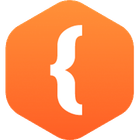
Code.org
Code.org provides a comprehensive platform for learning computer science, offering free coding courses and resources for K-12 students. It aims to make computer science accessible and engaging through interactive lessons, block-based programming, and advanced language options.
About Code.org
- Interactive Learning: Lessons are presented in an interactive format, often incorporating drag-and-drop block-based programming environments that visually represent code, making it less intimidating for beginners. As learners progress, they transition to text-based programming languages.
- Project-Based Curriculum: The curriculum is heavily project-based, allowing students to apply their newly acquired skills to create games, animations, and interactive stories, fostering creativity and problem-solving.
- Teacher Resources: Recognizing the crucial role of educators, Code.org provides extensive resources and professional development opportunities for teachers, empowering them to effectively teach computer science in their classrooms, even without prior programming experience.
- Focus on Diversity and Inclusion: Code.org actively works to diversify the field of computer science, with initiatives specifically targeting girls and underrepresented minority groups to encourage their participation.
- Hour of Code: Code.org is the driving force behind the global 'Hour of Code' movement, an annual event that introduces millions of students worldwide to computer science through a one-hour introductory activity.
Pros & Cons
Pros
- Free access to all educational materials.
- Engaging and beginner-friendly interface.
- Comprehensive curriculum for various age groups.
- Excellent resources and training for educators.
- Promotes diversity and inclusion in tech.
Cons
- Limited depth in advanced computer science topics.
- Community interaction features could be more robust.
What Makes Code.org Stand Out
Free and Accessible Education
All educational resources and courses on Code.org are provided completely free of charge, removing financial barriers to computer science education.
Focus on K-12 Curriculum Integration
Code.org actively works to integrate computer science into standard school curricula across the United States and internationally.
Championing Diversity in Tech
The organization has a strong mission to increase participation of underrepresented groups in computer science.
Features & Capabilities
11 featuresExpert Review
The structured curriculum is a significant positive. It offers a clear progression from visual, block-based programming environments like Blockly, which are excellent for teaching foundational logic and computational thinking without the frustration of syntax errors, to more traditional text-based languages like JavaScript and Python. This gradual transition is crucial for building confidence and preparing students for more advanced programming challenges. The platform's interactive nature, incorporating puzzles, challenges, and creative projects, keeps learners motivated and actively involved in the learning process.
One of the most commendable aspects is Code.org's dedication to educators. The provision of free, high-quality professional development is vital for empowering teachers, many of whom may not have a background in computer science, to effectively deliver this curriculum. The teacher resources, including lesson plans, tutorials, and community support, are invaluable in scaling computer science education across schools.
The 'Hour of Code' initiative, spearheaded by Code.org, deserves special mention. This global movement has been instrumental in raising awareness about the importance of computer science and providing a low-barrier entry point for individuals of all ages to experience coding firsthand. Its widespread adoption has significantly contributed to the visibility and perceived relevance of computer science.
While Code.org excels in introductory and intermediate programming concepts, particularly for a K-12 audience, it is important to manage expectations regarding its depth for advanced computer science topics or professional software development skills. The platform's primary focus remains on foundational knowledge and inspiring interest in the field. Learners seeking highly specialized or in-depth training in specific programming languages or computer science domains might need to supplement their learning with other resources.
The community aspect, while present, could be further enhanced to provide more direct peer-to-peer support and collaboration opportunities, especially as students tackle more complex projects. While forums and resources are available, facilitating more organic interaction among learners could foster a stronger sense of community and shared learning.
In conclusion, Code.org is an exceptional resource and a game-changer for K-12 computer science education. Its commitment to accessibility, engaging content, and empowering educators makes it an indispensable tool for introducing the next generation to the world of coding. It is a well-designed, impactful platform that is actively shaping the future of learning.
Key Strengths:
- Highly accessible and free educational content.
- Effective use of visual programming to introduce concepts.
- Comprehensive resources and professional development for teachers.
- Significant global impact through initiatives like Hour of Code.
- Strong focus on encouraging diversity in computer science.
Areas for Potential Improvement:
- Depth of content for advanced computer science topics.
- Enhancement of community interaction features for peer support.









